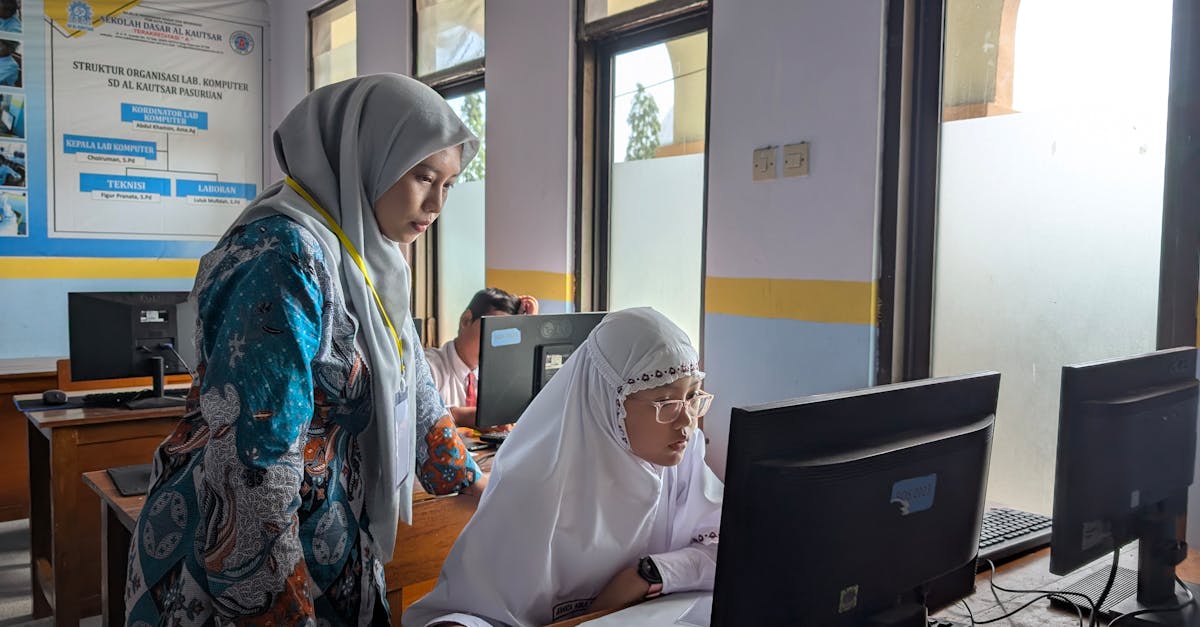
In the realm of public education, the issue of teacher retention has long been a persistent challenge, particularly in regions like North Florida encompassing counties such as Duval and Saint Johns. Teacher turnover not only disrupts the learning environment but also impacts student outcomes. To combat this crisis, traditional methods have been exhausted, prompting a need for unconventional approaches. Enter, rallies—a novel way to advocate for teacher retention in public schools.
Rallies have traditionally been associated with demonstrations for social or political change. However, in the context of public school information, rallies are emerging as a potent tool to address critical issues such as teacher retention. Conventional strategies like policy changes and salary increments have only shown limited success. It’s time to explore new avenues, and rallies offer a platform for educators, students, parents, and community members to come together and amplify their voices on the pressing issue of teacher retention.
North Florida’s Duval County and Saint Johns School districts have been particularly hard-hit by the teacher turnover crisis. High teacher attrition rates not only disrupt the continuity of education but also contribute to a negative school culture and impact student achievement. By organizing rallies focused on teacher retention, these communities can bring attention to the challenges faced by educators and emphasize the need for sustainable solutions to retain quality teaching staff.
Rallies can serve as a catalyst for change by:
1. **Building Community Support**: Rallies provide a visible platform for the community to rally behind teachers and show solidarity in addressing the issue of retention. By garnering public support, educators feel valued and appreciated, which can boost morale and job satisfaction.
2. **Advocating for Policy Reform**: Rallies can be used to advocate for policy changes that support teacher retention, such as professional development opportunities, mentorship programs, and improved working conditions. By bringing attention to these key issues, rallies can influence decision-makers to prioritize strategies that promote teacher longevity.
3. **Raising Public Awareness**: By generating media attention and engaging the wider community, rallies can raise awareness about the complexities of teacher retention and the impact it has on students and schools. Educating the public about the challenges faced by educators can foster empathy and understanding, leading to a collective effort towards finding sustainable solutions.
In conclusion, the teacher retention crisis in North Florida’s Duval County and Saint Johns schools demands innovative approaches, and unconventional rallies could be the key to initiating change. By harnessing the collective power of the community, educators, and stakeholders, these rallies can pave the way for meaningful dialogue, advocacy, and action towards creating environments where teachers feel supported, valued, and motivated to stay. It’s time to rally together for the future of education in these communities.








Haha, I guess these rallies are like the superhero version of solving teacher retention issues, huh? They’re swooping in to save the day when traditional methods just ain’t cutting it!
Yah rallies sound like a good idea to help teachers stay in their jobs and help
Yo, teacher retention is a big deal, especially in North Florida, like Duval and Saint Johns counties. It’s a real struggle, you know? Rallies might be a fresh way to tackle this problem. Sometimes you gotta think outside the box, right? These rallies can bring everyone together—teachers, students, parents, and the community—to shout
OMG y’all, teacher retention is like a huge problem in North Florida, especially in Duval and Saint Johns! Like, we gotta do something about it, you know? Rallies sound like a pretty cool idea to bring attention
Wow, because nothing says “let’s fix the education system” like a good old rally, right? I mean, forget about actual policy changes
Teacher’s work so hard with not so much pay and rallies are so importent to help them get what they need. Teachers need more support and rallies can help with that. We need to show them we care and want them to stay. Rallies can make a big difference and we should support them.
Rallies are such a great idea to address the issue of teacher retention, especially in places like North Florida. I thinks its super important to support our teachers so they can keep doin their great work and helpin our students succeed. Rallies can bring the community together to show how much we appreciate and value our educators. Plus, they can help push for policy changes that can make a
Wow, rallies for teacher retention in schools? That’s a cool idea! I think it’s important for teachers to feel appreciated and supported so they stick around and do a good job. Raising awareness and advocating for policy changes can really make a difference. Let’s
yea im like rallies are like super cool man, they can like help teachers and students and stuff. teacher retention is like a big deal in florida and we gotta
OMG, like for real, teacher retention is a big problem in Duval and Saint Johns, y’all. Rallies could totally
Ugh, teacher retention is such a big problem, especially in places like North Florida. It’s like, come on, can’t we figure this out already? Rallies, really? Is that gonna solve everything? I mean, sure, it’s good to show support and all, but we need real solutions, not just waving signs and chanting. And what about
Teacher retention is a major issue in public education, especially in places like North Florida with counties like Duval and Saint Johns. This turnover messes up the learning vibe and messes up student success. Rallies could be the answer to
Rallies are an unconventional but potentially effective approach to tackling the persistent challenge of teacher retention in public schools, especially in regions like North Florida’s Duval and Saint Johns counties. These events can serve as a powerful tool to bring together educators, students, parents, and the community to advocate for sustainable solutions and raise awareness about the impact of high teacher turnover rates on student outcomes. By building community support, advocating for
oh man, it’s so sad to hear about the teacher turnover problem in North Florida. it’s like the students and schools there are caught in a never-ending cycle of change and instability. these rallies seem like a good idea though, bringing everyone together to show support for the teachers. maybe if people see how much teachers are valued, they’ll start to make some changes to keep them
Ha ha, these teacher rallies are like the superheroes of the education world, swooping in to save the day! Forget capes, just give them some chalk and a megaphone, and they’ll fight for teacher retention like it’s the ultimate battle! Power to the teachers and their rally cry for support!
Teacher retention is a big problem in North Florida. Rallies could be the answer. Teachers need support and appreciation to stick around. Rallies can help with that. They can also push for better policies and make people more aware of the issue. Teachers in Duval and Saint Johns need our support. Let’s rally for them!
Rallies can really make a big difference when it comes to making sure teachers stick around in North Florida. It’s like a big gathering where everyone shows they care about teachers and want them to stay. The rallies can help make changes to policies that keep teachers happy and give them the support they need. It’s important for everyone to know about the problems teachers
OMG, like, rallies for teacher retention in North Florida?! That’s totally awesome, I mean, teachers are so important and stuff. We gotta like, support them and show them we care, you know? Rallies can be like, super powerful for making change and stuff. We need to, uh,
Yeh rallies sound like a good idea to help with keepin’ teachers in schools. I
I think this a really important topic! Teachers deserve so much love and support because they do such an important job. Rallies sound like a cool idea to help them feel appreciated and valued. I think bringing
Um, rallies for teacher retention? Seriously? Like, how is that even gonna work? Teachers need, like,
Yasss, rallies for teacher retention are such a great idear! We gotta support our teachers and make sure they feel valued, ya know? And like, rallies can bring everyone together—teachers, students, parents, the whole gang—to
Ugh, teacher turnover is like such a big problem in North Florida. Like, Duval and Saint Johns counties have it rough, you know? Rallies are kinda a cool idea, I guess. Like, they can maybe help with keeping teachers around and stuff. Schools need good teachers, man. Turnover messes everything up.
Wow, these rallies for teacher retention are like the superhero cape for education! I mean
Ugh, like seriously, why do we need rallies for teacher retention? Can’t they just pay teachers more and treat them better so they want to stay? I mean, I get that rallies could help
Ya know, this article makes some good points about how rallies can help with keeping teachers around. I seen how some teachers just up and leave and it ain’t good for nobody, especially the students. Maybe if more people come together and make some noise about it, things might start to change. It’s worth a shot
Rallies sound super cool! It’s like everyone coming together to support teachers and make sure they stay in the classrooms where they’re needed. I think it’s awesome that these rallies can help raise awareness about teacher retention issues and maybe even lead to some changes that will make teachers feel more appreciated. Teachers are so important, and it’s great to see communities rallying around them
i think rallies is a good idea for geting teachers to stay bc it shows support and its important for teachers to feel app
OMG i am sow tired of hearing about teecher retention like why is it even an ishue in the ferst place! LOL rallies are not gonna do anything to keep teechers in schools, its just
I feel really sad reading about this teacher turnover problem in Norf Florida. Teachers are so important and it makes me really upset when they leave and it messes up the learnin for the students. I think it would be good to have rallies and stuff to help keep the teachers stayin and make the schools better. Teachers need all the help they
Rallies sound like a super cool way to show support for teachers and try to fix the problem of them leaving and stuff. I think it’s nice when people come together and support each other, makes everyone feel good, you know? And also, when we have rallies, we can talk about policies and stuff that might help teachers want to stay and not leave, like better training and stuff.
Wow, because nothing says “let’s solve the teacher retention crisis” like a good old rally! Forget about sensible strategies and meaningful reforms, let’s just wave some banners and chant slogans, that
I think rallies are a good idea to help keep teachers in schools. It’s important for teachers to feel supported and valued so they can do their best to help students succeed. By having rallies, the community can show that they care about teachers and want to help them stay in their jobs. This can make a big difference in schools in
I tink that rallies are a reely grate way to help keep more teachers
Ya know, teacher retention is like super important, especially in places like North Florida. Rallies sound like a cool idea to help keep teachers around ’cause it’s a big problem when they keep leavin’. The community needs to come together and show support for teachers, maybe that’ll help
Oh great, because we all know that rallies are the magical solution to every problem, right? Forget about sensible policies or meaningful changes, let’s just gather in a big group and everything will magically fix